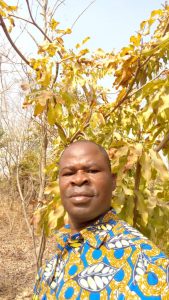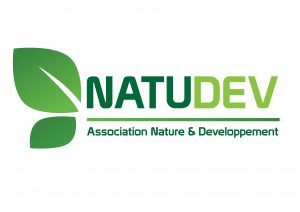Interview of Alexis Kaboré, Natudev
Alexis, with some colleagues, you set up NATUDEV of which you are the president. Can you briefly introduce your organization, the missions it pursues and your main achievements?
NATUDEV was set up in 2004 in Ouagadougou. Peripheral territories of protected areas complex encompassing WAP (W-Arly-Pendjari parks in the eastern part of Burkina Faso) and PONASI (PO National Park-NAzinga Game Ranch-SIssili Forest Reserve in the south-central part of the country) constitute our focus areas where we support communities to enforce natural resources management effectiveness. With regards to our achievements, I am happy to point out that the process that should lead to securing and gazetting the wildlife corridor N°1 (located between Kaboré Tambi National Park and Nazinga Game Ranch) was initiated and is in progress; the generation of data and knowledge upon inventories and surveys undertaken on various thematic areas; the set-up and operationalization of local associations in charge of natural resource management at the village level; the facilitation of local communities’ participation in the corridor governance body; the support to communities for the development of green ventures as well as the dissemination of farming best practices.
NATUDEV is active mainly within ecological corridors linking national important protected areas. Can you tell us what the driving forces of such situation are and also the related challenges?
The fact that NATUDEV concentrates its efforts on the corridor N°1 covering 4,500 hectares follows concerns expressed by certain stakeholders involved in the governance of this conservation area which pointed out the absence of a legal status for this corridor notwithstanding its ecological importance in terms of connectivity, but not only!
Thus, in 2016 when we position on the site, the threats are diverse and intense: encroachment for agricultural purposes, illegal logging and carbonization, illegal grazing, contamination by pesticides and chemical fertilizers massively applied in surrounding farmlands, etc. The above-cited practices endangered both the corridor integrity and as a result the integrity of the PONASI ecological continuum itself, and the provision of associated ecosystem services.
In such a situation, our priority at NATUDEV has been to work through a participatory and inclusive approach to endow the corridor with a legal status. The option, based as far as possible on consensus, consists to gazette the landscape as a municipal forest, involving municipalities located in the peripheral area of the corridor. However, this seems to be a quite long process that would require technical competencies that municipalities seem to not have fully vested yet. Again, an additional challenge would be to lead communities transform their practices into more sustainable natural resource utilization streams.
PPI5 has recently granted your organization. What objectives the funded project pursue?
The project PPI.5 is currently funding aims at supporting relevant stakeholders towards improvement of the management effectiveness of the corridor N°1 and to enforce the local governance process in place. In this perspective, the main actions to be implemented encompass the operationalization of the corridor gazetting process and the set-up of the local governance structures, the establishment of developments to improve the visibility and operationality of the corridor N°1, the revitalization of honey and Shea butter value chains within the 6 surrounding villages, etc.
Actually, you perform actions aimed at reconciling conservation and revenue stream development within communities fringing conservation areas. From your view point, which are the most important levers to activate to ensure both economic viability and ecological sustainability of the business model?
The business models we encourage are focused on community empowerment through generation of economic profitability while ensuring ecological sustainability of the value chains. To attend this, we enforce the skills of our project beneficiaries on best practices all along the process (from inputs collection to end-products). Also, we continually adapt our product range to the market’s needs and we are gradually embarking on high quality commodity processing through certification that would enables us targeting premium pricing. Allow me to inform you that the certification process of our honey value chain has already been initiated, and the certification of the Shea butter process shall follow soon.
Alexis, you’re also a key player in the promotion of ICCAs in Burkina Faso and in Africa broadly. Can you tell us briefly the actions you undertake in this frame?
I am actually the Coordinator of the ICCA Consortium for the Sahel. ICCAs, which stands for “Indigenous Peoples and Community Conserved Territories and Areas”, designate natural sites conserved on a voluntary basis by communities, as long as they meet the three following criteria: (i) the existence of a strong connection between the community and the site; (ii) a community-lead governance model in place and (iii) the effective contribution of the site to biodiversity conservation.
Five groups of ICCAs could be distinguished in Burkina Faso: i) sacred grooves; ii) sacred watersheds; iii) community pastoral lands; iv) community forests; v) village game areas. About 50,000 sites have already been identified in the country as potential ICCAs and covering much more than one million hectares which are effectively managed by communities. Our support enabled to set-up ICCA association at the national level as well as management association at each ICCA level. Additionally, we promote the enforcement of stakeholders’ technical skills alongside the implementation of management operations in some ICCAs…



